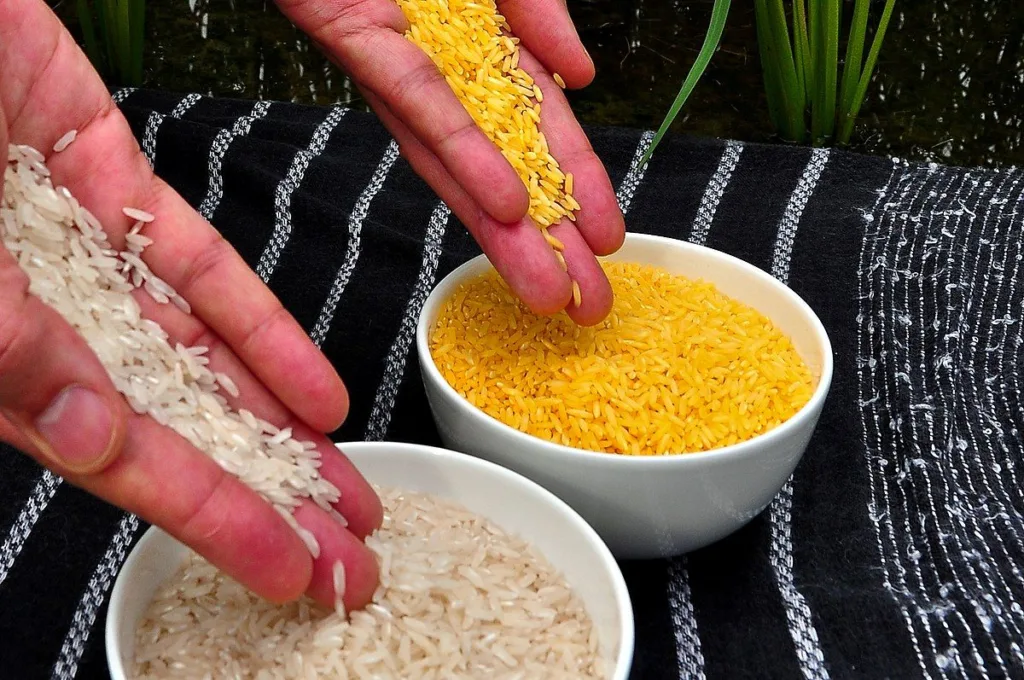Biofortification: The Indian Council of Agricultural Research (ICAR) has successfully developed and introduced 142 biofortified varieties in 2014, significantly contributing to the enhancement of both field and horticultural crops.
The latest data reveals a comprehensive array of biofortified offerings, including 124 field crop varieties and 18 horticultural crop varieties, demonstrating the extensive impact of this pioneering effort.
Among the field crops, the biofortified varieties span a diverse range, comprising Rice (10 varieties), Wheat (43 varieties), Maize (20 varieties), Pearl millet (11 varieties), Small millets (13 varieties), Linseed (1 variety), Lentil (2 varieties), Chickpea (2 varieties), Mungbean (1 variety), Fieldpea (1 variety), Urdbean (1 variety), Mustard (8 varieties), Soybean (7 varieties), Sesame (1 variety), and Groundnut (3 varieties).
In the horticultural domain, the biofortified offerings include Sweet potato (5 varieties), Amaranthus (3 varieties), Greater Yam (2 varieties), Potato (2 varieties), and single varieties of Cauliflower, Okra, Grapes, Banana, Guava, and Pomegranate.
One of the remarkable features of these biofortified varieties is their minimal impact on ecological conditions, particularly on soil and water. As traditionally bred varieties, they exhibit similar water and nutrient requirements as conventional varieties, mitigating concerns about adverse environmental effects.
Moreover, extensive research and testing have confirmed that all biofortified varieties are either equivalent to or surpass conventional varieties in terms of yield. This negates any financial burden on farmers, as there is no yield penalty associated with cultivating biofortified varieties, and no additional costs are incurred in their cultivation.
Since the inception of this initiative in the agricultural landscape, a total of 37,425.7 quintals of breeder seed for biofortified varieties have been produced and supplied to various public and private seed production agencies. This supply chain ensures downstream multiplication to foundation and certified seed levels, subsequently reaching farmers for cultivation.
Under the National Food Security Mission (NFSM), substantial assistance is provided to farmers through State/Union Territory interventions. This includes cluster demonstrations on improved package practices, cropping system demonstrations, seed production, and distribution of High Yielding Varieties (HYVs)/hybrids.
The NFSM also extends support to ICAR, State Agricultural Universities, and Krishi Vigyan Kendras for technology backstopping and the seamless transfer of technology to farmers under the guidance of Subject Matter Specialists/Scientists.
In the past six years alone, more than 10 million hectares of agricultural land, encompassing wheat, rice, pearl millet, mustard, and lentil, have been cultivated with biofortified varieties, marking a significant stride toward a more sustainable and nutritious future.
Encouragingly, states are incentivized to organize demonstrations, including Cluster Frontline Demonstrations, Frontline Demonstrations, and technology exhibitions specifically focusing on biofortified varieties. The distribution of biofortified seeds is actively encouraged, fostering a broader adoption of these nutritionally enhanced crops.
India’s foray into biofortification stands as a beacon of innovation, aligning agricultural progress with nutritional goals, and heralding a transformative era in sustainable farming practices.

